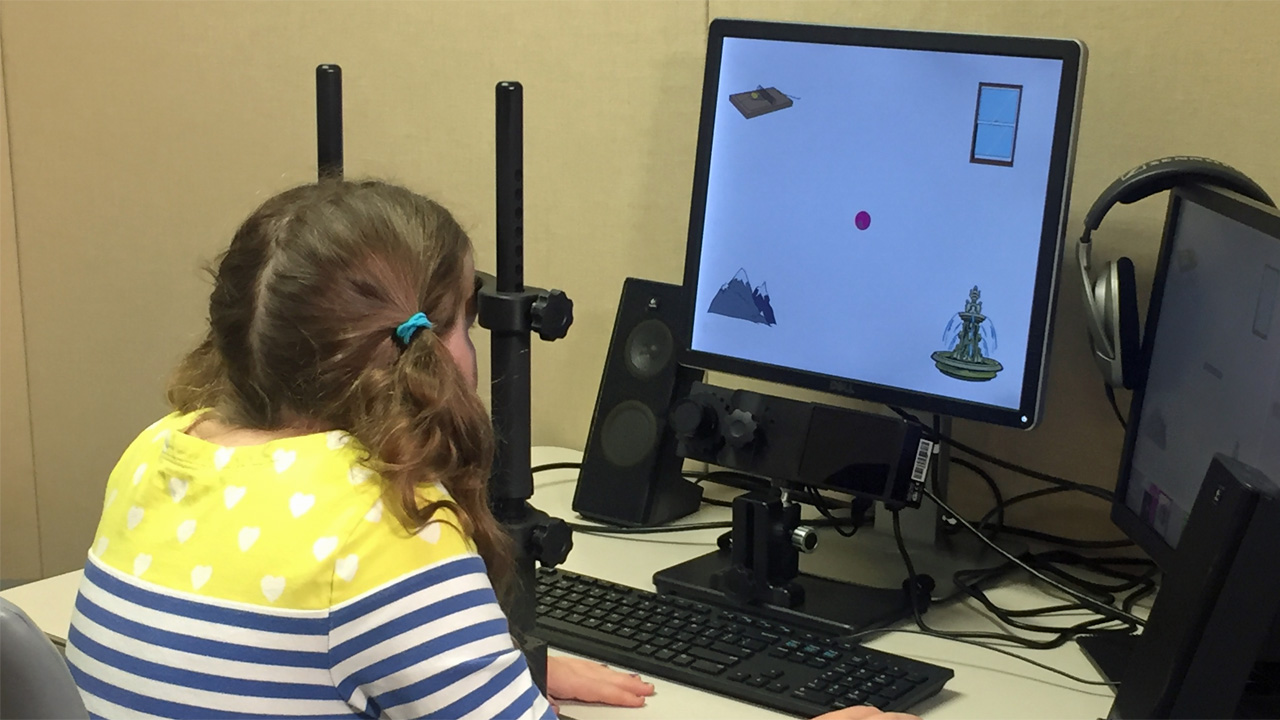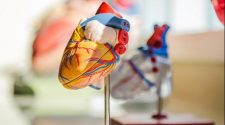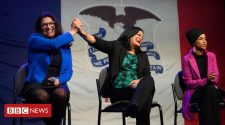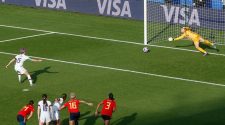CEDAR RAPIDS, Iowa (KCRG) University of Iowa researchers are hoping the results of a new study will tell them more about how children learn words.
A child participates in an eye-tracking exercise as part of a University of Iowa study into how children learn words (Taylor Holt/KCRG)
Researchers in partnership with the Cedar Rapids School District are using new, eye-tracking technology to do this.
Currently, 200 Cedar Rapids and Iowa City students are participating in the “Growing Words” project. The research, funded by $2.1 million from the National Institutes of Health, is looking at how children process words and how it affects learning to read and language throughout life.
Infrared light is used to get a close up picture of the eye as it moves, and the computer tracks what a child is looking at every 4 milliseconds.
The way they are using it is through a simple task, where a child hears or sees a written word on the screen and has to choose which of the four objects the word refers to.
“Maybe they are going to hear a word like ‘wizard,’ and they have to choose between the wizard and the window and the lizard [on a screen], and what they do while making the choice is their eyes dart around, they start to look at the wizard, at the window, and by measuring exactly how often they look at each of those objects, we can figure out what they are thinking before they’ve made their decision,” Dr. Bob McMurray, principal investigator on the study with the University of Iowa, said.
McMurray said, so far, they’ve learned that language develops very slowly. Between ages 9 and 16, children are still getting better at recognizing words. He said children with language disorders don’t complete this task very well, which gives them more insight into why certain kids struggle with language.
Cedar Rapids Community School District officials said they plan to apply the results of the four-year study to teaching in their schools.
Researchers are still looking for first- through third-graders of all abilities to participate in the program. They hope to enroll 400 kids, and the students will be compensated. Participants come to the lab in Cedar Rapids once a year for four years. Each session takes two to four hours. Children are paid between $65 to $75 per year and transportation is also provided.















